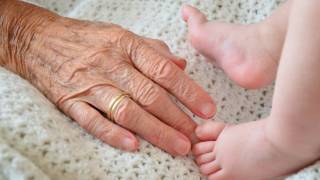Herpes Zoster Risk Increased by 15% Following COVID-19

Since the start of the COVID-19 pandemic, several case reports have been published describing Herpes Zoster (HZ) cases in COVID-19 patients.
As a SARS-CoV-2 coronavirus infection can result in T-cell immune dysfunction, it was hypothesized that this could trigger latent HZ reactivation.
A recent peer-reviewed study was the first large, retrospective cohort study designed to investigate the hypothesis that COVID-19 could increase the risk of HZ.
This study found that older adults diagnosed with COVID-19 have a 15% increased risk of developing HZ than those never diagnosed with COVID-19.
And the increased HZ risk was more pronounced (21%) following COVID-19 hospitalization.
These findings highlight the importance of getting and maintaining HZ immunization.
And these researchers stated, ‘healthcare professionals should consider that COVID-19 may be a risk factor for HZ.’
HZ, also known as shingles, is caused by the reactivation of latent varicella-zoster virus (VZV) and is characterized by a painful, vesicular, dermatomal rash.
Shingles can be prevented with an effective and safe U.S. FDA-approved vaccine.
In the U.S., the Shingrix vaccine has been available since 2017 at most clinics and pharmacies.
On June 25, 2021, the U.S. CDC reviewed 'Zoster Vaccines Session: Burden of Herpes Zoster in Immunocompromised Adults' and GSK's presentation: 'Use of Recombinant Zoster Vaccine in Immunocompromised Populations.'
And the CDC published updated zoster vaccination schedules in February 2022.
Volume 9, May 2022, Open Forum Infectious Diseases initially published this study on March 9, 2022. This study matched 394,677 individuals ≥50 years old diagnosed with COVID-19 with over 1.5 million individuals never diagnosed with COVID-19.
The individuals with COVID-19 were exact-matched 1:4 to those without COVID-19 by age, sex, presence of HZ risk factors, and health care cost level.
This study had several strengths, such as using a Poisson regression model to adjust any variables that showed an imbalance between the COVID-19 and non-COVID-19 cohorts despite matching, thereby further controlling for possible confounding. And the study’s limitations included those inherent to retrospective research-based on claims data.
GlaxoSmithKline Biologicals S.A supported this work and these researchers disclosed their relationship with the company.
A previous population-based study published by The Lancet in February 2022, ‘identified an increased risk of HZ-related hospitalization after CoronaVac and BNT162b2 vaccinations.
PrecisionVaccinations publishes fact-checked research-based vaccine news.
Our Trust Standards: Medical Advisory Committee
- Increased Risk of Herpes Zoster in Adults ≥50 Years Old Diagnosed With COVID-19 in the United States
- Herpes zoster related hospitalization after inactivated (CoronaVac) and mRNA (BNT162b2) SARS-CoV-2 vaccination: A self-controlle
- Herpes zoster following COVID-19 vaccination in an immunocompetent and vaccinated for herpes zoster adult: A two-vaccine related
- Association study between herpes zoster reporting and mRNA COVID-19 vaccines (BNT162b2 and mRNA-1273)
- CDC: Use of Recombinant Zoster Vaccine (RZV) in Immunocompromised Populations
- Zoster Vaccines Session: Burden of Herpes Zoster in Immunocompromised Adults
- Shingrix Shingles Vaccine
























